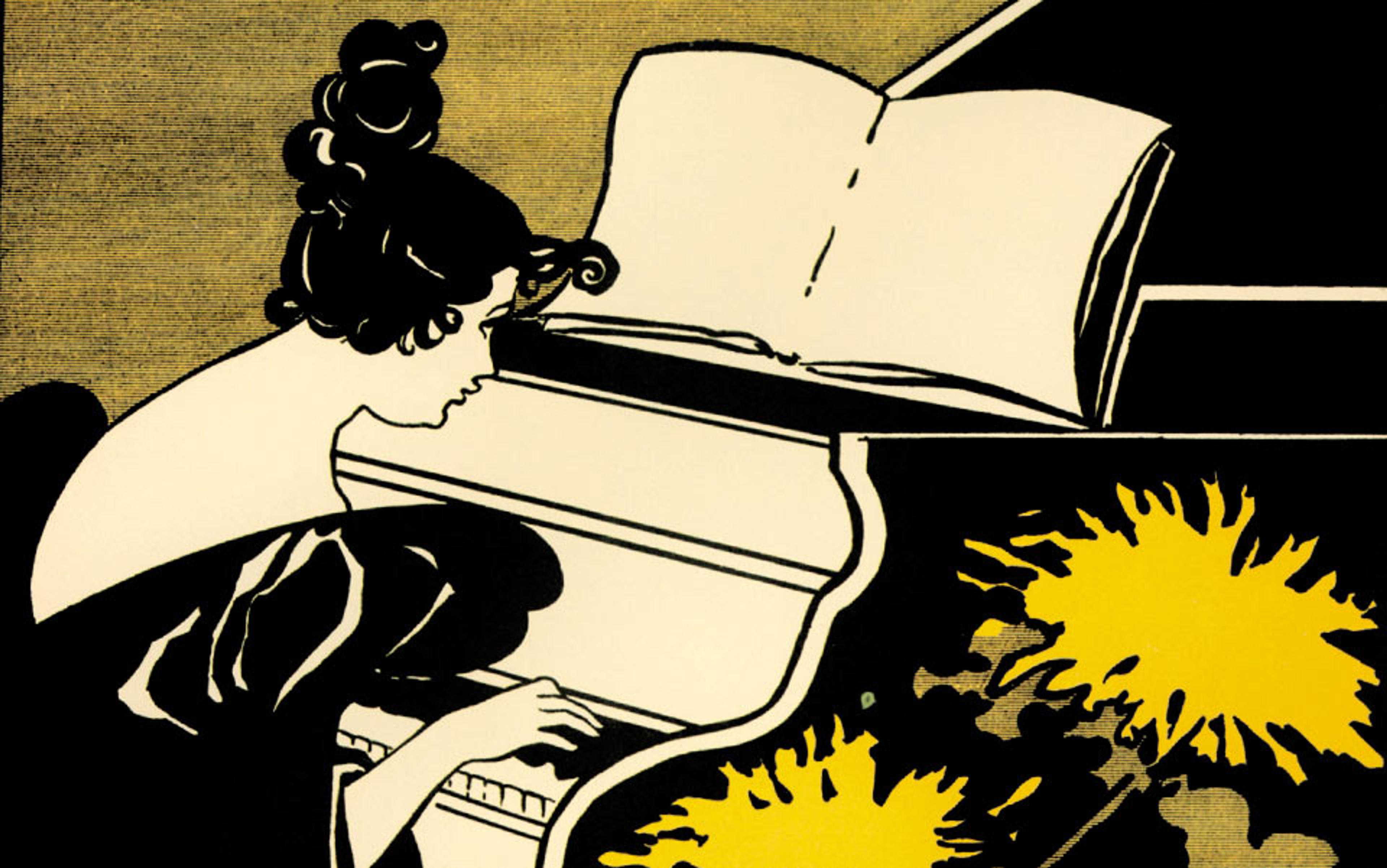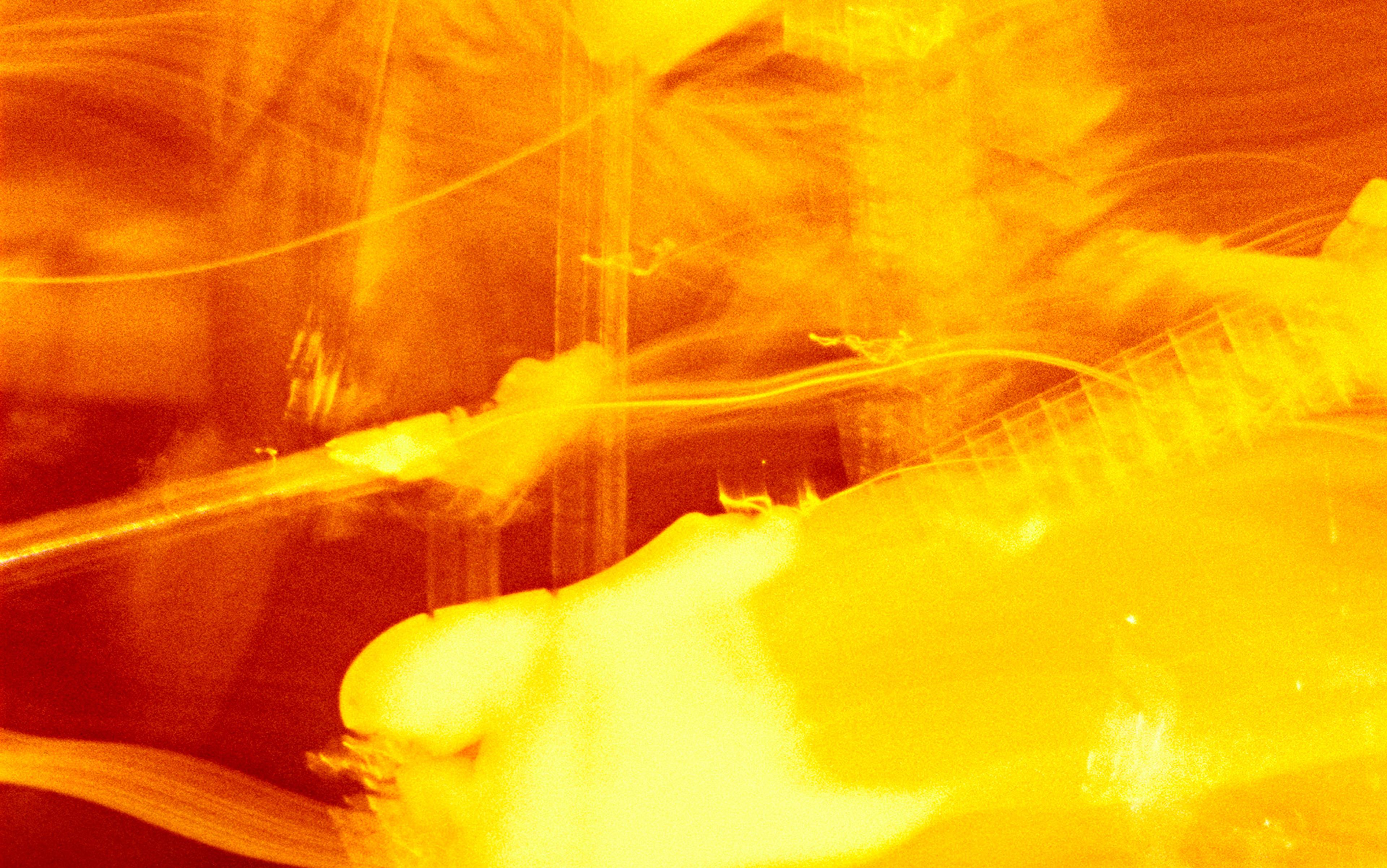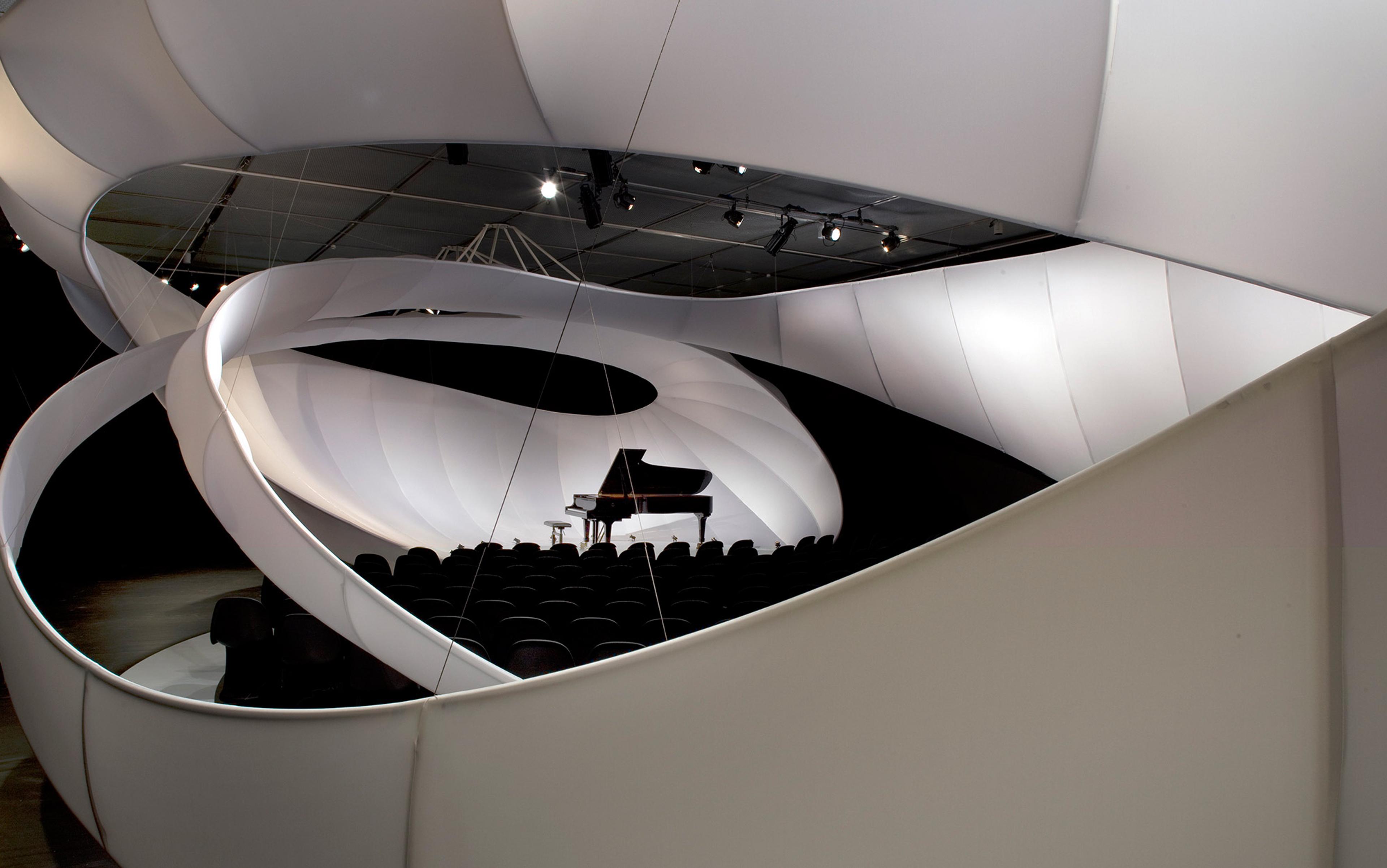Most days, I play the piano for at least an hour, usually longer. But my dedication springs from fear not love. Of course, many soloists suffer from perfectly rational performance nerves, but my fear is less rational: it’s the fear of anybody, anybody at all, actually hearing me play and it’s so powerful it stops me from having piano lessons. Just thinking about somebody listening makes my brain and fingers freeze, the way your legs freeze in frightening dreams. Since I live in a city terrace, I can only play at all because I have a middle-sized Yamaha grand piano with a silencing facility. With the silencer on, nobody but me can hear anything but the clacking of the keys.
It’s hard to know from where such a specific fear stems: I have no fear, for example, of speaking in public. I don’t even think the fear would extend to a different instrument. But as soon as I sit at the piano, I feel my father’s contempt for pianists who fancy themselves better than they are. If I could shout ‘I know my limitations, really I do!’ perhaps my fear would diminish. Instead, I’ve been trying to kick the fear into touch by memorising Bach’s Goldberg Variations. If I could memorise them, then with the score as backup, I would have double anti-fear ammunition.
Myth has it that Bach composed his Variations to cure insomnia, though in scholarly circles this is now largely disbelieved. And he certainly didn’t compose them to cure a phobia. However, for me, the decision to memorise them made sense. First, the 30 variations are short, none more than two pages of musical score. Second, the girls in my novel-in-progress learn the variations, so I would learn with them — ‘method writing’, like ‘method acting’.
Yet, at the same time, my decision made no sense. Short does not mean easy. Composed in separate and distinct voice-lines rather than tune and accompaniment, the Variations are difficult enough on the double manual harpsichord for which they were originally designed. On a piano, the technical demands of some of them are certainly beyond me. But those demands were part of the attraction. Hours of repetitive practice would be needed, and if I practised hard enough to memorise them, even knowing that music is not just a parade of memorised notes, perhaps my playing would become more automatic. In other words, could my memory beat my fear?
Memory can, of course, trigger fear. Traumatic memories release adrenaline which, in turn, generates a response in the amygdala, the part of the brain that processes emotions. Just as Pavlov’s dogs learned to salivate when they heard a bell ring, part of my fear is certainly memorised habit: I expect to feel fear when I play the piano aloud, so I do. But this kind of memory is different in type to that used to learn a musical score. Techniques for memorising musical scores involve not the amygdala but the hippocampus — the part of the brain where memories of our experiences are ‘supported’, to use the scientific expression.
Rather like a London cabbie doing ‘The Knowledge’, the constant exercising of my memory made it fitter
Such techniques include photographic memory — seeing the score in the mind — and analytic memory, through which study of the composer’s methods and preferred musical patterns offer clues as to what comes next. Sadly, however, the photographic memory of my youth, such a useful exam tool, has long since collapsed, and I’m not musically trained enough to find analytic memory helpful. Still, all was not lost. I would employ ‘chunking’ (segments learned individually, then strung together), and I would embed these chunks into my muscle memory, or, to use its scientific name, procedural memory, since muscles themselves obviously have no memory.
Procedural memory works by encoding and storing repeated actions in different sections of the brain: timing and coordination in the cerebellum, riding a bike in the putamen. Sometimes it’s positively unhelpful, for example when it generates ‘phantom limb’ sensations in amputees. Yet procedural memory offers one great hope to the fearful: since it’s not connected to emotional or experiential memory, and as long as you can reduce your automatic fear response, then even if fear paralyses you for a few seconds, your procedural memory should keep you going until you get the fear under control.
Better still, procedural memory, being hard-wired into our brain circuitry, can survive mental catastrophe. The British musicologist Clive Wearing suffered a viral attack on his central nervous system, which left him with a memory capacity of between seven and thirty seconds. Nonetheless, he can still play the piano from his procedural memory — though he has no recollection of actually memorising the music. All this made me consider whether, were I to be afflicted with dementia, the Goldbergs would remain with me.
And so I began, carefully marking-up fingering and repeating phrases until they were embedded, with the silencer firmly on, lest my endlessly repeated phrases drove the neighbours to murder. Some days, I forced myself to turn the silencer off because I needed to feel the fear to overcome it. Progress was extremely time-consuming, and this set me wondering. Why do concert pianists who do not suffer from paralysing fear bother to memorise, since the time drain must severely curtail their repertoire? In the year since I began, I’ve barely got to Variation 10. I know that young musicians carry dozens of works in their heads, in thrall perhaps to Clara Schumann’s declaration that playing from memory ‘gave her wings power to soar’. But, for older musicians, learning new work by heart presents an ever-worsening problem.
Still, fashions change. Some 60 years ago, consensus among musicians was that playing from memory was a form of arrogance, elevating the player above the score. Beethoven and Chopin deplored memorisation, and when Mendelssohn, though a brilliant memoriser, arrived at one chamber concert to find that his part was missing, he asked the organiser to put up any old book and turn the pages — notwithstanding that the work he played was his own.
As the difficulties of memorisation became real to me — some days even the variation order escaped me — I began to wonder whether our modern obsession with memorisation actually undermines confidence. Certainly, it alters the professional’s playing experience, adding a dimension of tension that audiences, bored with perfect recordings, might appreciate, but performers might dread. For me, however, memory was therapy. So I kept going.
About seven months in, I made a discovery. Repetition wasn’t just teaching me the notes of the Goldberg, it was improving my technique; and as my technique improved (though at what was still a maddeningly slow rate) occasionally, from under my fingers, there emerged something that sounded like the actual music Bach wrote. On impulse, I returned to other music — Brahms, Schubert, Debussy, even Rachmaninov. My playing was not by any professional standard good, but it was no longer a permanent technical struggle. Up to a certain level, I could actually play. What’s more, rather like a London cabbie doing ‘The Knowledge’, the constant exercising of my memory had made it fitter: procedural memory, in other words was working.
What about my fear-filled adrenalin levels? Well, oddly enough, my use of the silencer actually increased. A failure then? Not quite: almost without my noticing, an entirely different struggle began. My inability to play aloud still mattered, but now I wondered if memory might serve, not as a crutch to conquer fear, but as a springboard to transform my whole experience of the piano.
This question has generated a whole new set of anxieties. My technical improvements are undeniable but how far can they take me? And will they last? There’s something else, too. Instead of becoming more confident, I’m becoming more searching: I notice more in the music. Hours of memorising have not mastered my fear: rather, they have taught me that music cannot be learned by rote, unless you have cloth-ears. Nothing is automatic in the way that I’d imagined. In fact, my original quest was misconceived: physical familiarity with a phrase did not mean I didn’t think — far from it. Physical familiarity made me think more.
So, here I sit, silencer on, my fear of playing aloud as strong as ever. But that fear is no longer all-consuming. It would be nice to play aloud. It would be wonderful to have piano lessons. However, these days when I practise Bach, I’m less conscious of my fear and more conscious of being in touch with something greater than myself.
If I play with the silencer on the world will not lose out. If I play with it off, I might, in the paralysis of my fear, lose all I have gained. I think it’s what you call a no-brainer.






